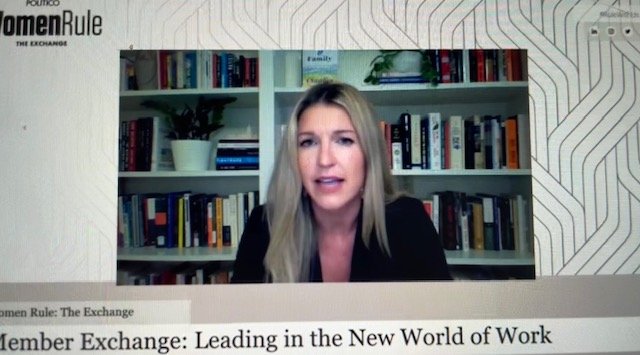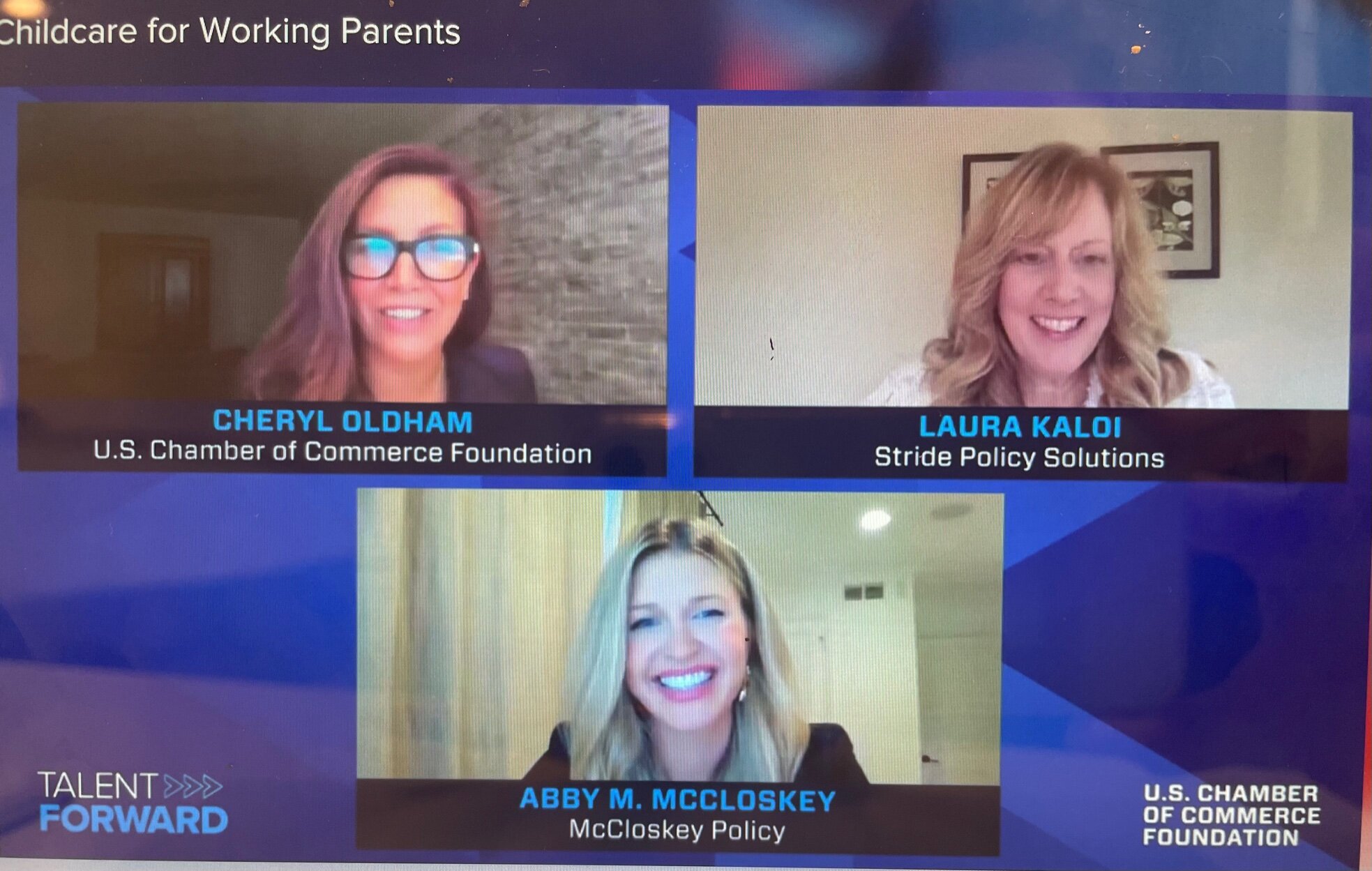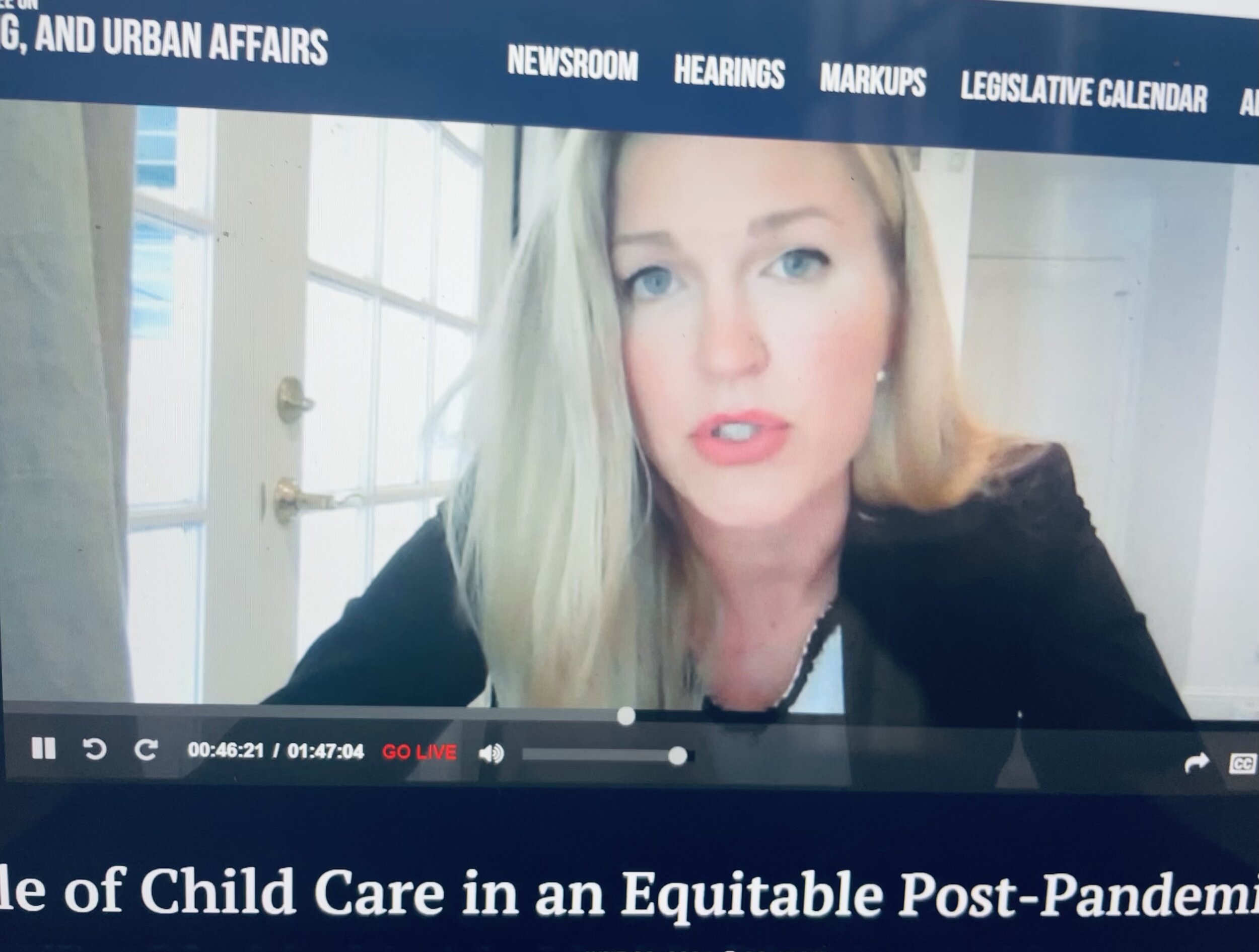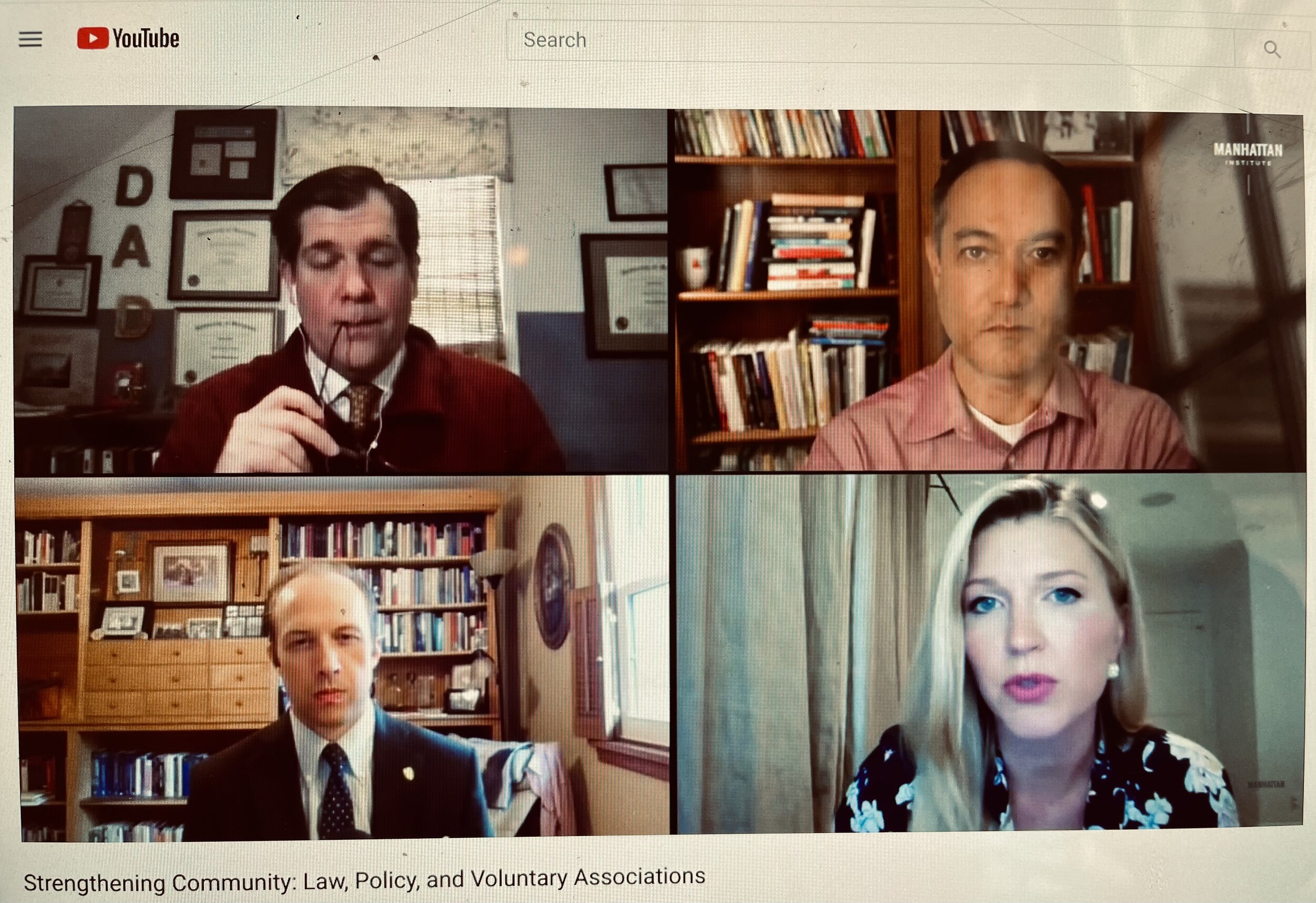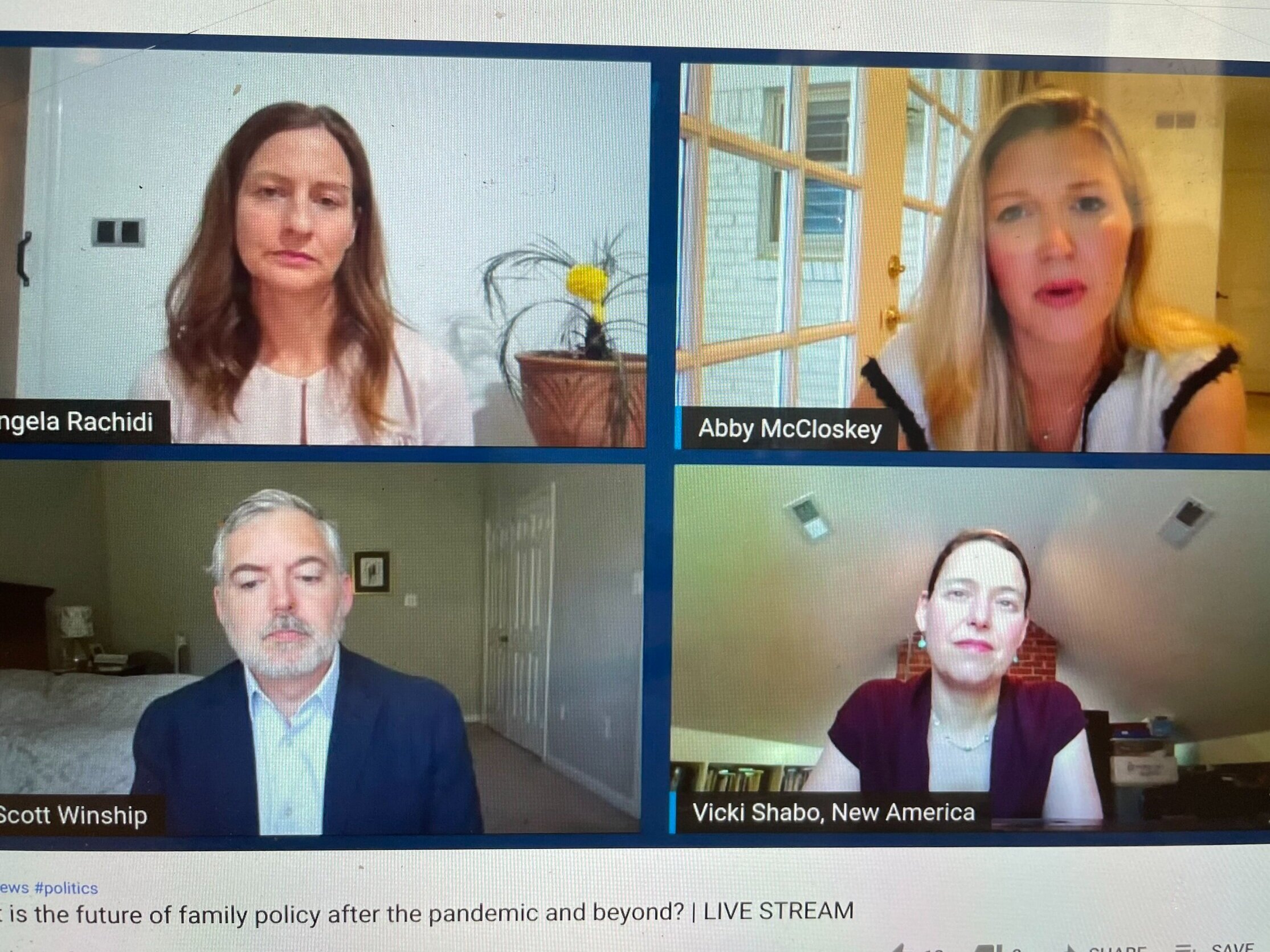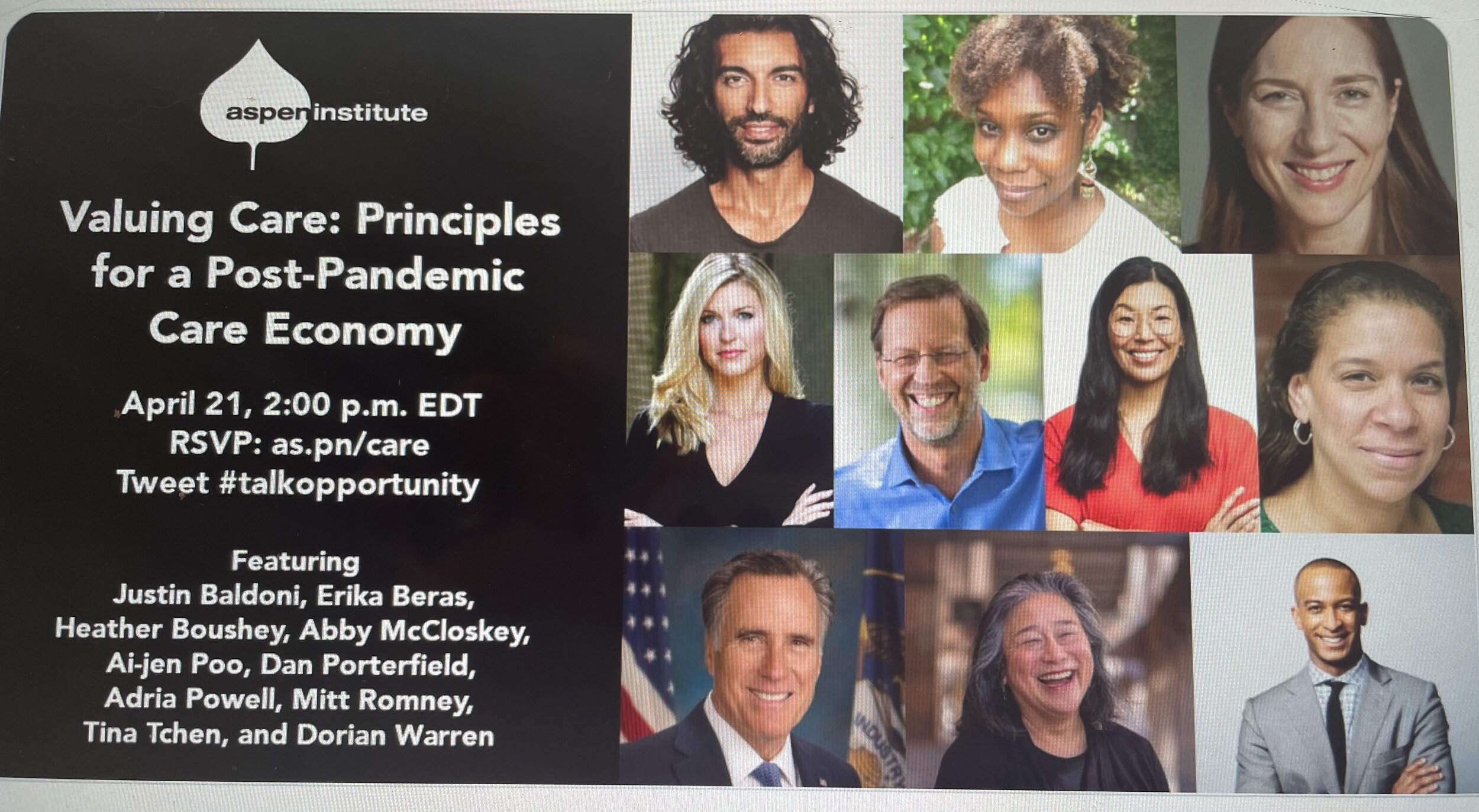The COVID-19 pandemic has underscored the value of caregiving work and the need for equitable and affordable access to care – for children, for elders, for those with a disability, and for all of us in hard times. Yet care work remains underpaid and often invisible, contributing to the inadequacies of the US care system and deepening challenges for caregivers and families. As we move from crisis to recovery, how can policy contribute to building a care economy that dignifies the work of caregivers and expands access to quality, affordable care? How can our systems center gender and racial equity to construct a care economy that serves all families? And how can our society support a healthy and sustainable caregiving system for our post-pandemic future, one in which the demand for caregiving is poised to continue to grow?
This special event hosted by the Aspen Institute Economic Opportunities Program explores these questions and more. The event features an exciting lineup of policy and practice experts, cultural leaders, and caregivers, including Justin Baldoni (Director and Producer, “Clouds,” “Five Feet Apart”; Actor, “Jane the Virgin”; Cofounder, Wayfarer Studios), Erika Beras (Reporter, Marketplace), Heather Boushey (Member, Council of Economic Advisers, The White House), Abby McCloskey (Founder and Principal, McCloskey Policy LLC), Ai-jen Poo (Executive Director, National Domestic Workers Alliance; Director, Caring Across Generations), Dan Porterfield (President and CEO, The Aspen Institute), Adria Powell (President and CEO, Cooperative Home Care Associates), Mitt Romney (US Senator from Utah), Tina Tchen (President and CEO, TIME’S UP), and Dorian Warren (President, Community Change; Cochair, Economic Security Project).
Speakers discuss the important role of caregiving in our economy and society, as well as a variety of ideas for building an equitable care economy both in the near term for recovery and in the long term for a post-pandemic future.
The Economic Opportunities Program’s Opportunity in America discussion series has moved to an all-virtual format as we all do what we can to slow the spread of COVID-19. But the conversations about the changing landscape of economic opportunity in the US and implications for individuals, families, and communities across the country remain vitally important. We hope you will participate as we bring our discussions to you in virtual formats, and we look forward to your feedback.
We are grateful to the Ford Foundation, Prudential Financial, Walmart.org, the Mastercard Center for Inclusive Growth, and the Surdna Foundation for their support of this series.





